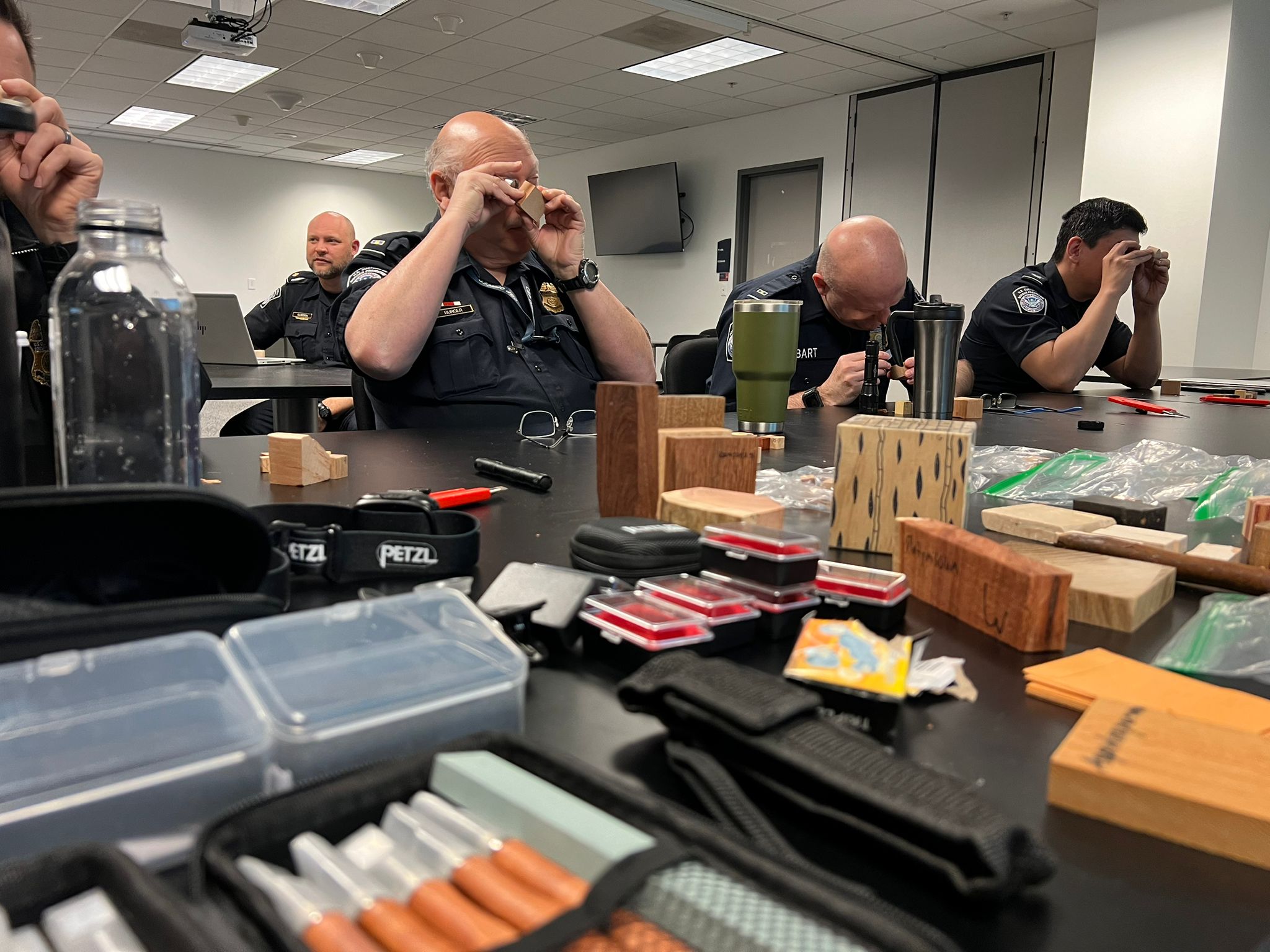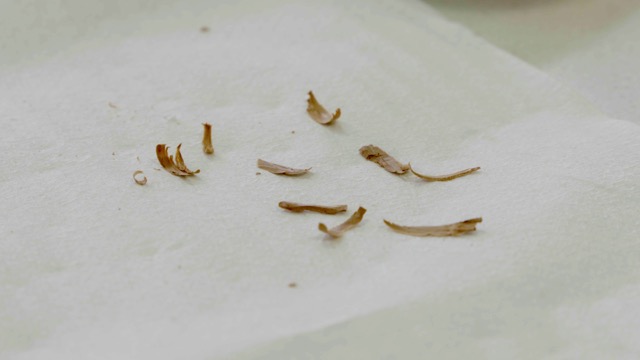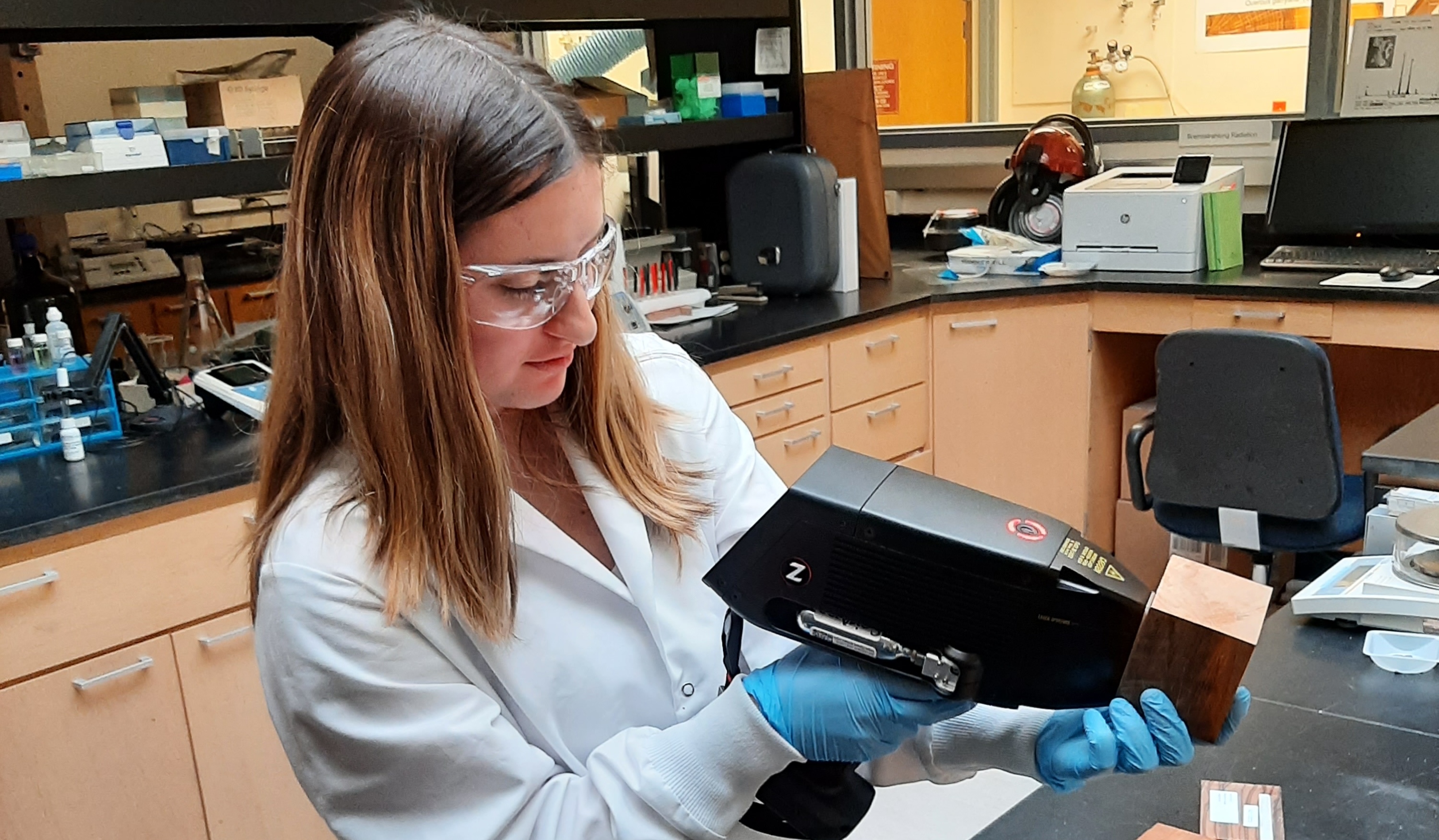
Illegal logging has economic, governance, environmental, and humanitarian consequences. It significantly impacts the U.S. and international forest products industry, undermines international governance and rule of law, and has massive environmental impacts. It also negatively affects forest dependent communities around the world.
The International Criminal Police Organization (INTERPOL) estimates that 15% to 30% of all globally traded wood has been harvested illegally.
Timber can be sold for much less than legally harvested timber, undercutting suppliers who adhere to national and international laws.
The Foundation and the Forest Service Office of International Programs & Trade work with U.S. industry and federal partners to:


IPT delivered an on-site training at the Port of Houston, the nation’s largest port by waterborne tonnage. The training focused on screening high-risk cargo, sampling techniques, wood anatomy, chemical analysis, and species identification. These skills enable federal agents to more effectively detect and prevent illegal wood imports while accelerating clearance of legal timber shipments.
Agents also strengthened coordination with the Forest Service Wood Identification and Screening Center, supporting rapid forensic analysis of suspicious shipments. This training strengthens Lacey Act enforcement and protects Texas’ forest product markets from unfair and illegal competition.

USFS IPT expanding its partnership with the University of Delaware to strengthen U.S. capacity to detect and prevent illegal wood imports. IPT recently added $357,724 in funding, bringing its total investment to $841,724.
This collaboration focuses on developing advanced tools and methods for timber geolocation and species identification, key technologies that help U.S. enforcement agencies uphold the Lacey Act and ensure that only legally sourced wood products enter American markets.
As part of this agreement, researchers are using the Laser Induced Breakdown Spectroscopy (LIBS) instrument, a handheld, portable device to identify wood species and origin on-site, enabling real-time verification by U.S. Customs and Border Protection.
The project includes testing LIBS on a range of internationally traded and trafficked exotic hardwoods commonly encountered by U.S. enforcement personnel. By improving accuracy and field efficiency, this innovative approach strengthens the nation’s ability to combat illegal timber trade and protect the integrity of U.S. forest products markets.

On September 16, 2025, the USFS IPT provided hands-on training at the U.S. Customs and Border Protection (CBP) - New York/NewarkService Port in Newark, NJ on assessing high-risk cargo, physical sampling, and evidence documentation. Participants included 25 CBP agricultural specialists and officers from Passenger Operations at Newark Airport, Maritime Cargo Operations at Port Newark Maritime Terminal and the Trade Intelligence Enforcement Response Team at JFK International Airport.
The training covered wood anatomy, sampling techniques, chemical analysis of wood samples, and wood species identification. Agents also learned how to collaborate with the Forest Service Wood Identification and Screening Center for analysis of suspicious wood shipments.
This program supports Lacey Act enforcement activities that protect the New Jersey and New York forest products markets from the devastating consequences of illegitimate foreign timber.
The Port of Newark handles imports of wood products, including softwood lumber, plywood, fiberboard, and other wooden articles sourced from multiple countries.